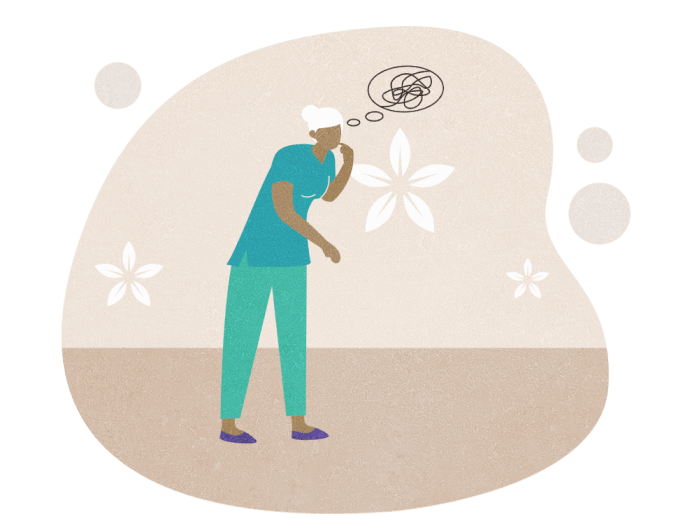Understanding dementia
![]()

Understanding dementia: causes, symptoms, and stages of the disease
Dementia is a condition that affects the brain, causing a decline in cognitive skills, memory retention, and language, as well as other functions. This condition is often associated with older individuals, but it can also affect young adults. If your loved one has been diagnosed with dementia it can be a confusing and stressful experience. It is important to learn all you can about the disease so you can provide the best possible care. In this blog post, we will discuss the causes, symptoms, and stages of the disease to help you better understand this condition.
Causes
Dementia can be caused by various factors, including genetics, brain injury, and lifestyle. The most common cause of Alzheimer’s disease, which is the most common form of dementia, is the accumulation of amyloid plaques and tau tangles in the brain. Traumatic brain injuries, repeated concussions, and exposure to toxins can also cause dementia. Additionally, poor nutrition, lack of exercise, and smoking can contribute to the development of the disease.
Symptoms
The symptoms of dementia differ depending on the type and severity of the disease. Memory loss, confusion, and difficulty communicating are the most common symptoms. Other symptoms can include difficulty completing ordinary tasks, changes in mood or behaviour, and difficulty with problem-solving. In the later stages of the disease, individuals may lose the ability to perform basic daily activities such as bathing, dressing, and feeding themselves.
Stages
Dementia progresses in stages, with each stage marked by different symptoms and levels of ability or function. The first stage is often characterised by mild cognitive impairment, where the individual may have difficulty with word retrieval or forgetfulness. The second stage (also known as the mild stage) is when the person’s cognitive decline becomes more noticeable. They may struggle with remembering the names and faces of colleagues or have difficulty completing tasks. In the next stage (the moderate stage) memory and cognitive decline makes it difficult for individuals to live independently, and they may need help with basic activities of daily living. In the final stage (severe dementia) individuals may be unable to communicate or recognise family members.
Dementia is a complex disease that affects millions of people worldwide. Understanding the causes, symptoms, and stages of the disease is crucial in providing the best possible care for your loved one. Early detection and management can help slow down the progression of the disease, maintaining a higher quality of life for the individual for longer. Remember, there are resources and support available, and you are not alone on this journey.
Speak to our team
We’re always happy to have a friendly, informal chat. Call 0208 857 7717 to discuss your live-in care requirements with a member of our team.
